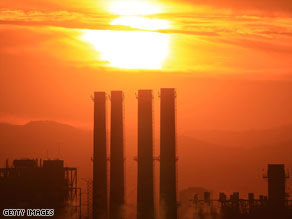The discourse surrounding global warming has evolved significantly in the last few decades, moving from conjecture to a firmly established consensus among scientists. An overwhelmingly large body of evidence now points towards human activities as the catalyst for climatic changes. A particularly impactful study serves as a scientific slam dunk, providing a plethora of insights that affirm humanity’s role in global warming. This article delves into the findings of this pivotal research and elucidates the various facets of our reliance on fossil fuels, deforestation, and industrial activities, which continuously exacerbate this pressing issue.
At the crux of the dialogue on anthropogenic climate change is the greenhouse gas effect, a phenomenon that explains how certain gases retain heat within the Earth’s atmosphere. The primary offenders include carbon dioxide (CO2), methane (CH4), and nitrous oxide (N2O). These gases trap solar radiation, resulting in an increase in global temperatures. The foundational study provides irrefutable evidence, linking the unprecedented rise in atmospheric CO2 levels—now surpassing 400 parts per million (ppm)—directly to industrialization and the combustion of fossil fuels.
Moreover, the research highlights the trajectory of temperature increases over the past century, correlating with the industrial revolution’s escalation. It meticulously outlines how human activities, particularly those related to the extraction and utilization of fossil fuels, have generated a staggering influx of greenhouse gases. Extensive data analyses indicate that the combustion of coal, oil, and natural gas has significantly contributed to the atmospheric concentration of CO2, which is now recognized as the predominant determinant of climate warming.
Beyond CO2, the study casts a spotlight on methane, which is often overlooked yet is significantly more effective at trapping heat over short time frames. The agricultural sector, particularly livestock production, is a considerable source of methane emissions. The research convincingly argues that dietary shifts and modern farming practices are pivotal for mitigating these emissions. Emphasizing the urgency of adopting sustainable agricultural models could yield immediate benefits in reducing our methane footprint.
In examining deforestation, the study brings forth compelling evidence that forested areas act as carbon sinks, absorbing CO2 from the atmosphere. The alarming rates at which deforestation occurs—predominantly for agricultural expansion—lead to not only the loss of biodiversity but also the release of stored carbon back into the atmosphere. This dual consequence highlights a critical area for intervention: reforestation and sustainable land management. By prioritizing these strategies, we can reverse some of the damage inflicted on our global climate.
Policy implications derived from this study are profound. Governments around the world have a responsibility to enact stringent regulations targeting emissions reductions, transitioning towards renewable energy sources. The research case studies various countries that have successfully implemented policies leading to a significant reduction in greenhouse gases. For example, nations investing in wind and solar energies have witnessed localized benefits while contributing to global efforts against climate change.
Furthermore, the report underscores the importance of international cooperation in addressing this global challenge. The complexities of climate change necessitate a multifaceted approach, integrating technology innovations, regulatory frameworks, and individual behavior changes. Global platforms like the Paris Agreement are essential in galvanizing collective action, yet the study emphasizes that such agreements must be equipped with enforceable commitments to ensure accountability among participant nations.
On the individual level, this research advocates for behavioral changes—encouraging individuals to reduce their carbon footprints through energy conservation, sustainable transportation options, and reduced dependence on single-use plastics. Simple lifestyle alterations can collectively lead to significant reductions in emissions. It portrays a scenario in which public awareness and education on environmental stewardship can galvanize grassroots movements, ultimately pressing policymakers to prioritize climate action.
An intriguing facet of the research also encompasses technological advancements that promise to reshape our approach to climate change. Carbon capture and storage (CCS) technologies are emerging as vital tools in this arena. Such innovations aim to mitigate the impacts of emissions from existing infrastructure while transitioning to cleaner energy sources. The adoption of these technologies must be coupled with ambitious emissions targets to pave a sustainable path forward.
The study’s extensive public relations campaign aims to disseminate these results widely, catalyzing discussions in communities, educational institutions, and public forums. Building a robust narrative around the urgency of climate action will invigorate collective efforts, stimulating volunteerism and increased funding for environmental initiatives. Inviting diverse stakeholders—including technologists, scientists, and community leaders—into the dialogue fosters innovation and collaborative problem-solving.
Lastly, it is imperative to communicate that the window of opportunity for effective climate action is narrowing. Merely acknowledging the realities of global warming is insufficient; decisive and immediate measures must be taken. The irrefutable evidence provided in the pivotal study acts as a clarion call to rethink our trajectory and make profound commitments toward sustainability.
In conclusion, the study encapsulates a compelling narrative about the undeniable link between human actions and global warming. It lays forth a guide for understanding the intricate dynamics at play and elucidates the paths yet to be taken. By fostering awareness, prioritizing innovative solutions, and advocating for joint efforts across sectors and borders, we can collectively confront this existential challenge and create a more sustainable future for generations to come.








